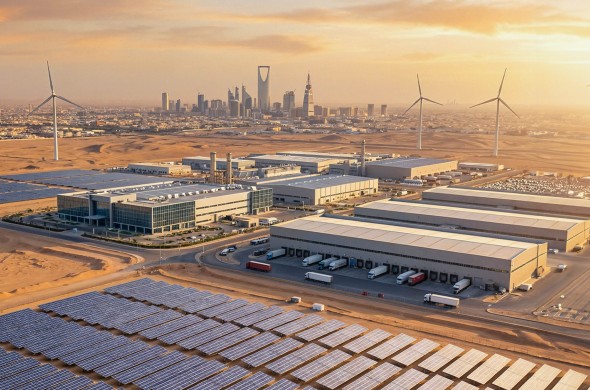In an era marked by unprecedented global challenges, the need to drive sustainable and inclusive growth in G20 economies has become imperative, both as a strategic necessity and a moral imperative.
The G20 must prioritize sustainable and inclusive growth moving forward, focusing on scaling initiatives on empowerment and achieving net zero emissions. As a leading consulting firm with a deep understanding of various industries, we offer insights into driving sustainable and inclusive growth in G20 economies.
Necessary steps to close economic empowerment gaps in the G20
Currently, an estimated 3 billion individuals in the G20 economies are not yet economically empowered, with India and South Africa representing the highest share of the population below the “economic empowerment line.” Economies in other countries, such as Saudi Arabia, are performing well, with Saudi Arabia set to grow at the fastest pace in a decade.
Economic empowerment gaps that revolve around disparities in income, access to resources, opportunities, and economic participation may vary due to unique socioeconomic and cultural contexts. Closing these economic empowerment gaps is necessary to reach sustainability goals.
The process requires comprehensive policy measures relating to education, healthcare, labor market regulations, social safety nets, and initiatives that promote gender equality and social inclusion.
Common economic empowerment gaps to address through policy and investing in initiatives include the following:
- Gender inequality where women earn less than men for similar work and have lower representation in leadership roles and decision-making positions.
- Income inequality whereby a significant portion of the population struggles with low wages, limited access to quality healthcare and education, and inadequate social safety nets.
- Disparities in access to education and healthcare hinder social mobility and economic empowerment.
- The rural-urban divide limits economic opportunities for those living in rural areas with limited access to infrastructure, education, and job opportunities.
- Labor market disparities, particularly in employment opportunities, wage gaps, and career advancement, are based on discrimination and bias.
- Disparities in access to capital and support for entrepreneurship and small businesses owned by marginalized individuals.
Shifting the focus to the low-emissions investment
The G20 economies are committed to accelerating clean, sustainable, affordable, and inclusive energy transitions in which low emissions play a role. Investing in low-emissions demands key steps to be effective, including supporting the acceleration or production and utilization of low-emissions technologies.
Climate finance is necessary to help developing economies within the G20 finance the transition to becoming low-emissions resilient economies. Investments in low-emissions need to ramp up significantly by 2030, upwards of an additional $35 trillion this decade, to put the G20 on the path to meet 2050 net-zero greenhouse gas commitments.
While global decarbonization efforts have been underway, G20 economies are at a critical crossroads. CO2 emissions must drop by approximately 50% before 2030, demanding an upfront transition to a low-emissions economy, especially in high-income economies such as Saudi Arabia, Germany, and the United States, where reducing emissions presents a challenge while attempting to sustain economic growth.
Role of economic growth and business-led innovation
Focusing on economic growth and increased business innovation in G20 economies can close approximately half of the G20’s empowerment and net-zero gaps with the right strategy and focused effort.
The private sector’s contribution to economic growth is invaluable. Consider how accelerating business growth and model innovation can impact the empowerment gap. Successful examples are already making news, such as Saudi Arabia introducing reforms to advance women’s economic participation, such as introducing freedom of travel and movement.
Businesses also play an important role in financing the initiatives driving net-zero transition. For example, progressive firms in the Middle East have committed to selling environmentally friendly products, with 46% of regional respondents aiming to increase their investments in ESG in the upcoming years.
Bridging inclusion and sustainability gaps
Inclusive growth is a collaborative effort, and G20 economies can learn from one another’s successful efforts to close the empowerment and net-zero investment gaps. From training to improve productivity to prioritizing quality healthcare and the availability of good schools, promising examples and methods exist at national, regional, and local levels.
For example, the Saudi Green Initiative combines the efforts of government ministries, private sector entities, and foreign leaders to identify and deliver opportunities for rapid climate action, including a target of generating 50 percent of the country’s energy from renewable sources by 2030.
While progress in some areas is quantifiable, growth may manifest differently in other areas. Through communication and collective efforts, G20 countries can find and share ways to bridge inclusion and sustainability gaps.
Growth, technology, and finance
At the heart of progress are the streamlined efforts of growth, technology, and finance, which are all essential to eliminating empowerment and net zero gaps in G20 countries.
As new high-growth opportunities present themselves across sectors, these factors are essential to drive progress and maximize opportunities. For example, modern methods of construction (MMC) describe a fast way to deliver new buildings, maximizing the efficiency of material and human resources. Saudi Arabia has announced 44 MMC factories with a capacity of 25,000 units annually, offering more jobs to the Kingdom.
Technologies, such as robust broadband access, introduce more opportunities to improve the operational efficiency of businesses while increasing the efficiency of the government’s administrative interactions with citizens.
Finally, a steady financial supply of capital is necessary across economies and sectors, especially in poorer countries, to close empowerment and net-zero gaps. Financing methods will play a pivotal role in scaling up priority projects, with a lot of responsibility falling on the shoulders of private businesses.
Strategic planning consultants across sectors
The pursuit of sustainable and inclusive growth in G20 economies hinges on the ability to bridge the economic empowerment and net-zero gaps. As we've explored, these disparities are interconnected and hold the key to a resilient and equitable future.
By addressing these challenges head-on, G20 nations can unlock the full potential of their economies, foster greater social cohesion, and contribute significantly to the global effort to combat climate change.
Read our latest insights, ideas, and perspectives that explore the trends shaping the future of business and society. Our consultancy services go hand-in-hand with these insights, confirming our position as industry leaders. Get in touch to find out more about our consulting services and industry expertise.



